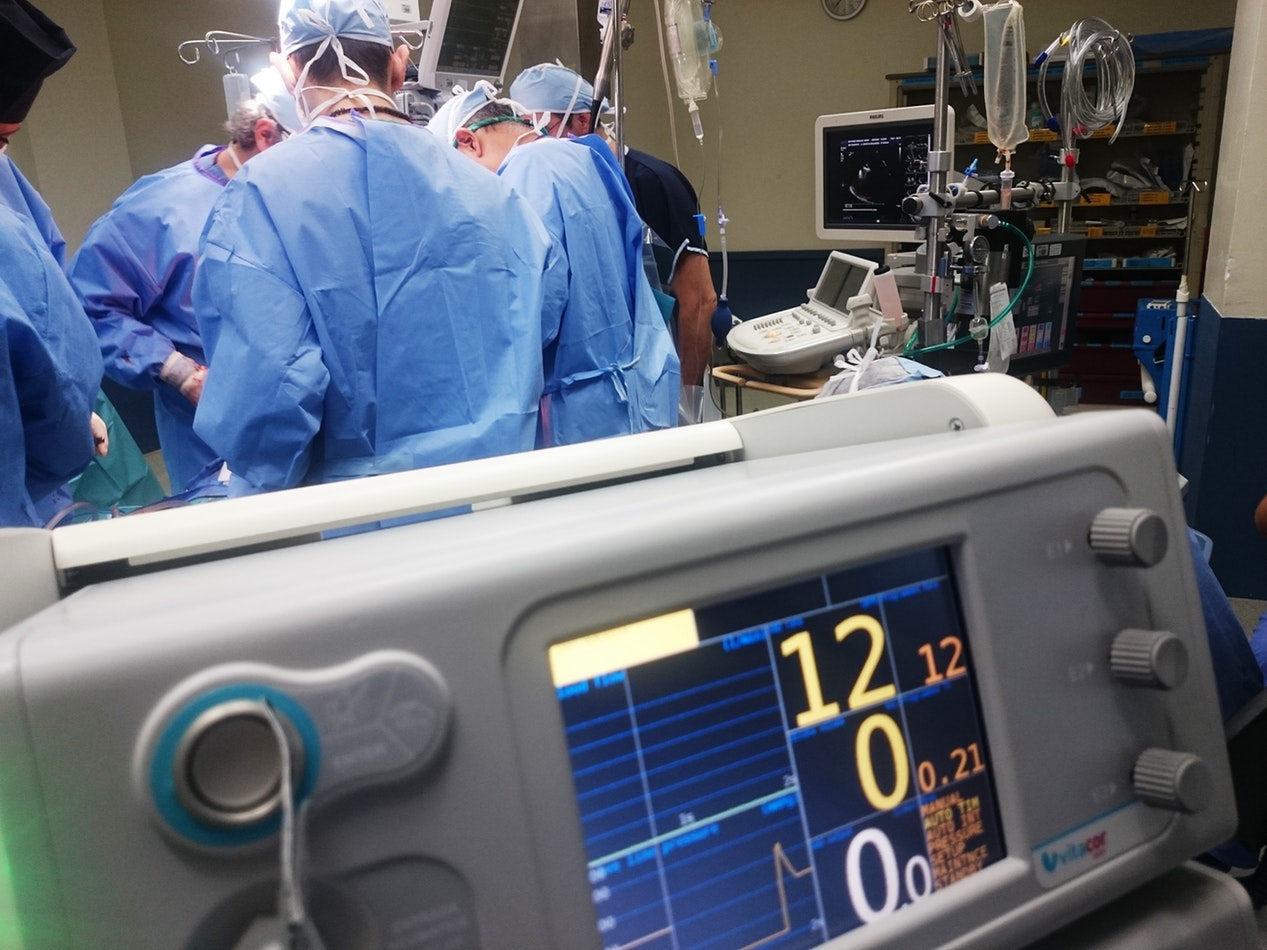The truth in numbers
The numbers don't lie. They tell a tale of a society living well beyond its means. This is why 80% of Americans are broke and living pay check to pay check.
Statistics don't lie. We are living longer, but just not as long as you would expect. The US Male average life expectancy climbed from 74 years in 1980 to 76.1 years in 2018. Pretty pathetic considering over that time period we spent 10x as much on healthcare. Clearly relying on your doctor and the medical system isn't enough to increase longevity. Here's a methodology that you might be interested to know...
The good news: According to www.usafacts.org the average life expectency rose from 74 years in 1980 to 79 years in 2015. But then dropped to a staggering 76.1 years (mainly due to the opiod crisis and increase in drug overdose rates). https://usafacts.org/metrics/31805
The bad news: If you are an American (and I suggest this infection is spreading to other countries worldwide), the cost of these additional 2 years of life has raised healthcare costs 10x over that period. https://usafacts.org/metrics/32828
Not a great return on investment from a finance sense. Of course on your deathbed you are not regretting having a fatter wallet. But maybe your financial well-being is tied to your life expectancy? Sure, if you can't afford medical care in a society where availability of medical care is restricted due to over population and unaffordable costs, then it is all well and good to have a cure for cancer. But if only those with $500K of liquidity can take advantage of it, then it is just another pointless news story.
So how about we approach this differently. I have a strategy that has worked really well so far (touch wood) for me and my family and I shared this on the ChooseFI podcast in 2017. You might enjoy a listen to this episode here: https://www.choosefi.com/060-medical-tourism-myles-wakeham/
There are three simple categories for health care:
This makes solving the problem a bit easier. Firstly the assumption is that you are taking responsibility for your own healthcare and not assuming that the state or someone else is doing that. If you are not taking responsibility, then I can't help you. By giving up your most crucial control to a 3rd party is basically suicide in my opinion. But you do you, as they say.
Preventative healthcare is typically sold to us based on vanity (weight loss, athleticism, etc.), but you should see through the smokescreen and realize that a healthy weight and active exercise program not only increases the quality of life on a daily basis, but the number of days you got. 10 years ago the popular TV reality shows like "Biggest Loser" often began the initial measurement of a candidate based on a weight but also a "biological age" and this was to take into consideration the effect that being obese was having on their average life expectancy. If this wasn't a wake up call, I don't know what is. But despite the costs of treating things that are clearly under our control (weight, smoking, drug addiction, alcohol addiction, high risk lifestyles, etc.) we often choose to avoid this. In 90% of all cases, we give up our power to a 3rd party and succumb to what we clearly know will kill us - eat too much and bad quality so called "food", choose to ingest poisons into our bodies, etc. and we get the results of that. Just basic math. You can't argue math.

Until you take responsibility for this category of your health, you run the risk of having incidents in the latter categories. By living a healthy lifestyle, you will not only live longer but the quality of life rises so fast that you are typically more wealthy because you have clarity of mind to see opportunities ahead of the population, and the willingness to act upon decisions that clearly benefit you.
Our bodies break down over time. Or possibly you might have a fault in your physiology that needs to be addressed. We are a very well balanced and interconnected system and when one part fails, it could negatively affect other parts. E.g. if you have a problem with your leg, it may manifest not only in the leg, but puts more pressure on other joints & muscles to compensate and eventually wears those out as well.
If you cannot address these issues, they just get worse. The problem is that in the USA, these things often go unaddressed because of health care costs. Many people have been able to rely on health insurance provided through their employers or purchased individually and attempt to take advantage of cover under these programs for elective medical procedures to correct these issues.
But it can be a mistake when you realize that health insurers that pay for these procedures are insurance companies. Their motivation is profit and the years of premiums that you or your employer pay into the fund are at risk if you actually use that insurance. So they make it less attractive. You have high deductibles that you have to pay - often in the thousands or even over $10K first. Then they kick in. Or maybe they just deny the claim entirely because it is a "pre-existing condition" or some other cop out. The fact is that they don't pay more than we admit and then you pay.
How much? This is where it is scary. The average cost of a hip replacement in the USA today is about $50K all up. That is huge. Do you have $50K in your bank account right now? Probably not. So do you want to get your hip fixed and run the risk that your insurance company says "No" when you go to submit the claim? And you might have to pay $5K out of pocket to cover the deductible or whatever your policy requires? Or do you continue to limp through each day in pain, knowing that it won't magically get better. At what point does "enough is enough" kick in?

Here is where medical tourism may save you. The same procedure in Mexico (and you can compare this with many other countries that are often less than a $500 airline ticket away) is about $4-5K all up. For most people that is equal to or less than the cost of their deductible. And you can couple this with a very inexpensive vacation to recover and it is done.
Is this not dangerous, you might ask? Probably not. If you do your research then you find facilities that are world class, clean and physicians are well trained and experienced. The cost of medical education in the USA is becoming so prohibitive that often when you go to the doctor, you realize that they were not educated in the USA. My general GP in Arizona is from India. We joke about immigrant life issues, but she is in the majority. A friend of mine wanted to get a medical education (he already had a BS in Science) but couldn't afford it. He ended up moving to the Dominican Republic for 2 years, got his medical training there, and then returned to the USA to do a paid internship in Florida. Today he is a practicing physician. You do what you have to, to survive. Don't fool yourself to think that US centric healthcare is anything more than a globalization based industry, and therefore you can play this to your advantage by "going where you are treated best" (to steal the phrase from Andrew Henderson from Nomad Capitalist.
Consider this: Dental work is about 25-30% of the US cost in Los Aldogones, Mexico. A 3 hour drive from Phoenix or San Diego.
Hospital procedures are about 10-20% of the US cost all through the Mexican private healthcare market. Try this one out as a sample: https://www.sanjavier.com.mx/san-javier-guadalajara/
A 2 hour flight from Phoenix to Guadalajara, and an Uber car trip from the airport to the hospital. Accommodation is super cheap as is food. The Mexican Peso is 19:1 to the $USD as I write this, and you can get most elective procedures done there at or often less than your copay costs in the USA. And no insurance company threatening not to pay and leave you with the bill.
So this is where none of us wants to be. You have a car accident, you have a heart attack, you get cancer, etc. We need to do everything we can to avoid these horrible events. They are often the closest chances of death that we face and although statistically you are probably going to have to deal with at least one of them in your life, this is where you don't get any advanced warning and you need 3rd party intervention immediately or you die.
How do you have coverage for this? Well thankfully in the USA, no emergency room will turn you away if you have an adverse event. No ambulance will not pick you up. But that is just the medical side of it. Great, you survived.
But now the after effect kicks in. You probably don't have any interest in thinking about this at the time, but the long pain process that follows a lack of preparedness may bankrupt you.

The leading cause of bankruptcy in the USA is medical debt, as evidenced here: https://www.fool.com/retirement/2017/05/01/this-is-the-no-1-reason-americans-file-for-bankrup.aspx
When you are on a stretcher in the emergency room in a hospital, you get no buying power. You can't agree or disagree to paying $5K for an aspirin. You gave up all power to the facility when you walked through the door. They can't no admit you, but then they can charge whatever they want. $200K, $500K, etc. And this is the massive profit incentive that these organizations have and what most health insurance companies dread.
You need to have some strategy for dealing with this for you and your family or face certain bankruptcy. You need some coverage and peace of mind that after your deductible is paid, the insurance company will pay 100% of the costs after that. Does your policy give you that? Have you tested it? Has anyone you know with that policy tested it? What was the result? Maybe you know of a co-worker who has the same insurance that you have, and they had an adverse event. How did the insurance perform? Did it live up to its promise?
I see these things as a core part of whether you should be working where you work. If you are paid well in salary, but could lose it all because the company provided healthcare is crap, then you are being underpaid and should look for another job. Put the pressure back on the employers to provide high grade quality healthcare, or get your own.
Research, research, research. Here's a start: https://www.nerdwallet.com/blog/health/managing-health-insurance/5-reasons-health-insurance-plan-deny-medical-bill/
An active and strategic approach to categories 1 & 2 (Preventative and Elective Health care) is critical and affordable if you treat your body well, and are willing to "go where you are treated best". Taking advantage of these things reduces the risk of category 3, Adverse events and increases longevity and quality of life.
Realize that category 3 (Adverse events) means you give up all control at the time of the event. Hopefully you will survive category 3 events, but expect that you will have at least 1 of them during your lifespan. Realize that insurance companies don't make profits by paying out on claims, so research everything you can to find one that is more likely to cover you than a cheaper or less effective policy that won't. Pressure your employers (if you get company provided health insurance) to work only with insurance providers that have a proven track record of paying for adverse event claims. All the fluff they sell you on "wellness programs", etc. should be something you are doing for yourself anyway and realize that you control the attack surface that is your body. Make it as impervious to attack as you can, and life gets better.